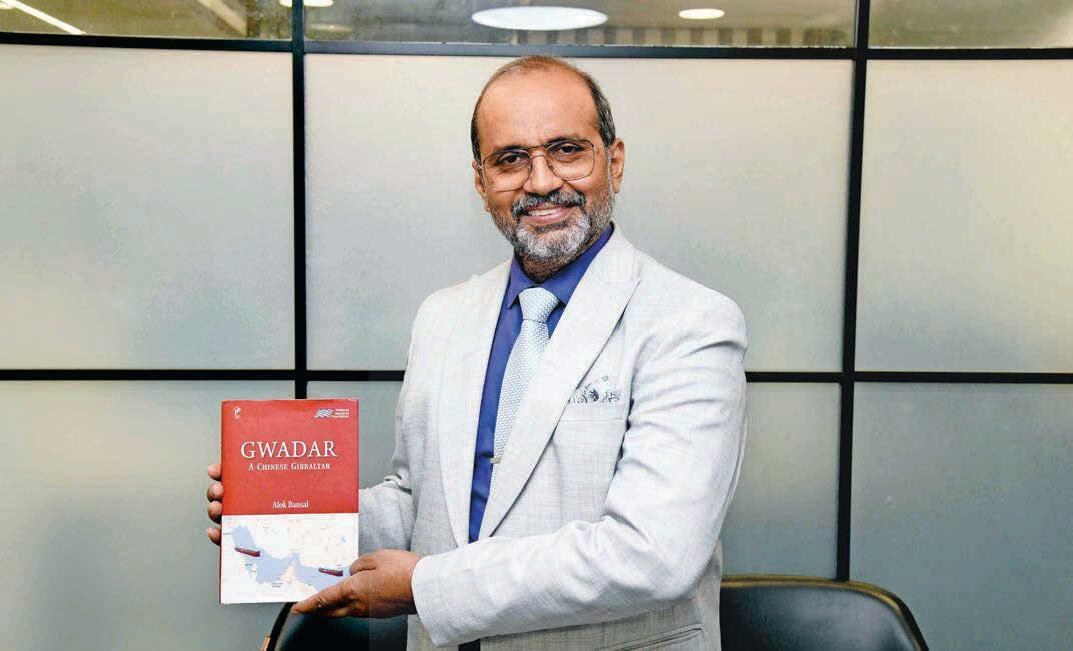
The Gwadar saga stretches back even further.
Pakistan had zeroed in on Gwadar to build a mega seaport in 1964, six years after acquiring it from Oman. The port would have the potential to accommodate super tankers and mother ships. And, that would be vital to attract the transit trade of central Asian nations. Moreover, it would allow Pakistan to keep an eye on the entire traffic to and from the crucial Persian Gulf.
But, work on the port began only in 2001. While the construction is almost complete, various associated projects are still in phases of development, including connectivity by road, rail and an airport. In 2013, the China Overseas Port Holding Company took over the leasing rights of the port and consequently Gwadar became a lynchpin in the ChinaPakistan Economic Corridor (CPEC).
Gwadar takes away the maritime advantage India enjoys over China in the Indian Ocean and embeds China in the northern Arabian Sea, thereby threatening India’s maritime security. Also, it adds to Chinese and Pakistani capability to threaten India’s energy security.
THE WEEK spoke to Captain Bansal on Gwadar. Edited excerpts:
Q Why do you call Gwadar a Chinese Gibraltar?
A Gibraltar controls access to the Mediterranean. This has been a British possession on the southern coast of Spain, another country. But Britain, by its presence in Gibraltar, controls any entry or exit from the Mediterranean towards the Atlantic. Similarly, and to some extent even more, because Gwadar is at the mouth of the Persian Gulf, China can control any traffic that is entering or exiting the Persian Gulf. Here we also need to understand that unlike the Mediterranean, which is open at both ends, the Persian Gulf can only be exited from one point—the Strait of Hormuz—and Gwadar is just outside the strait. So any maritime position there can monitor every vessel that is leaving or entering the Persian Gulf.
This story is from the September 01, 2024 edition of THE WEEK India.
Start your 7-day Magzter GOLD free trial to access thousands of curated premium stories, and 9,000+ magazines and newspapers.
Already a subscriber ? Sign In
This story is from the September 01, 2024 edition of THE WEEK India.
Start your 7-day Magzter GOLD free trial to access thousands of curated premium stories, and 9,000+ magazines and newspapers.
Already a subscriber? Sign In

The day of the knuckle-duster
Several narratives have emerged from the Donald Trump-Volodymyr Zelensky-J.D. Vance dust-up in the Oval office, the most disturbing being the opinion that “Zelensky invited it”.

The AGI dilemma
Spooky and powerful, AGI (Artificial General Intelligence), the planet’s newest technology, has divine benefits, as also diabolical applications that can trigger our destruction.

I want to transform MP into a powerhouse of development
GIS 2025 surpassed expectations in investment commitments, participation, and policy impact.

It is not NEP 2020, it is RSS 2020
TAMIL NADU’S RESISTANCE to the three-language policy under the National Education Policy (NEP) 2020 has reignited the debate over linguistic identity.

Munde blues
Just months into its tenure, the Fadnavis government suffers multiple blows

Plastic buckets and parliament seats
The plastics industry boomed in the 1970s when our rulers told our people to make fewer babies. The dairy industry, already on a high milkmark, should boom if Telugu Desam MP Kalisetti Appalanaidu gets people to make more babies. What’s the connection? Hold on. First listen to India’s population story that’s already a statistical farce, and may soon be a political tragedy.

MDGA-Make Diplomacy Great Again
Must say that all the reports of 'Agent Krasnov' make fascinating reading—like one of those old school, thick-as-a-brick bestsellers that Irving Wallace and Robert Ludlum used to write.

In search of Pampa
Salman Rushdie breathes life to the forgotten goddess Pampa Devi in his novel Victory City (2023).

Centre of attraction
If the enthusiasm at the Global Investors Summit is anything to go by, Madhya Pradesh is poised to write a new chapter of development

RO AND BEHOLD!
As the Champions Trophy win showed, the Rohit Sharma-led veteran brigade might not be over the hill. However, they will have to be on their toes as age and younger talent catch up